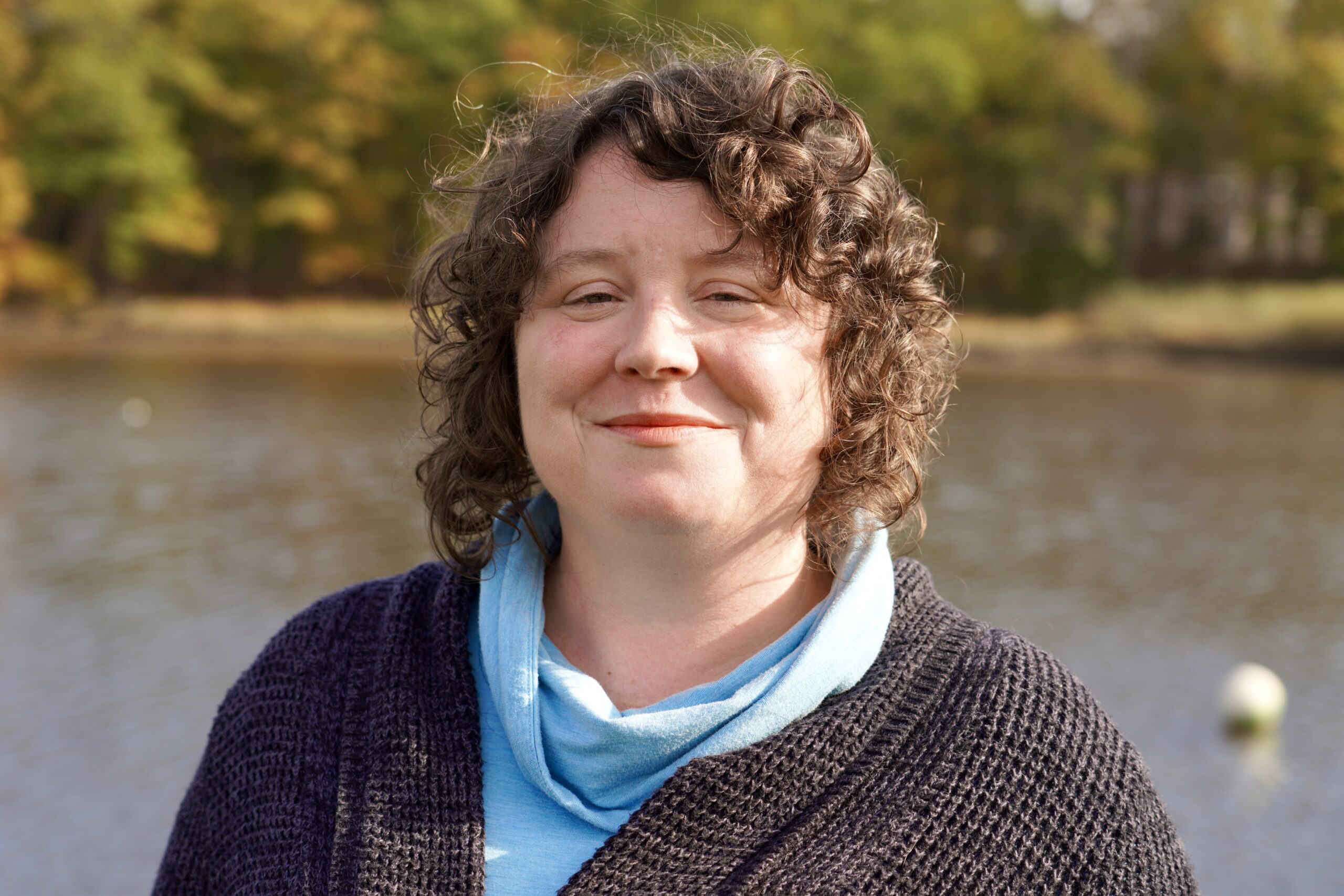Meet Annie Cox
Annie joins the PREP team as our Watershed Resilience Manager. This newly developed role strengthens our community engagement program, allowing us to be in multiple places at one time! Within the new role Annie will apply much of her previous experience engaging Maine coastal communities on climate adaptation and resilience to our Piscataqua Watershed region. Annie will support both the Great Bay 2030 program Great Bay Adapts and our community engagement program identifying needs, opportunities, and resources for our upper watershed communities.
How did you become interested in coastal waterways?
I grew up a short walk from the Damariscotta River in Midcoast Maine, playing among horseshoe crabs, barnacle-crusted rocks, and mussel shells. For summer jobs I frequently worked for small landscape companies maintaining coastal properties. During my service with the Peace Corps, I helped farmers think strategically about managing their land, from aquaculture to farming, and knew I wanted the opportunity to think and work at multiple scales. I attended a graduate program in sustainable landscape planning and design in Western MA. While I am fortunate to have travelled and lived in different places from eastern Germany to Queens, New York City to Mporokoso, Zambia, I’ve always been drawn back to the coast of Maine. After graduate school, I was able to combine all my interests at the Wells Reserve, working to bring the latest science to our communities’ decision makers, and helping them grapple with the impacts of climate change.
How did you come to work for PREP?
In my previous role at the Wells Reserve, I joined PREP’s Management Committee and served as Chair for the past three years. So, I had a solid understanding of the program’s mission, the smart and creative staff that make up PREP, as well the strong relationships they foster with organizations similarly working to support the health and resilience of Great Bay and Seabrook Hampton Estuaries. When I saw the job opportunity for this position, I was immediately drawn to the importance of the work and the challenge of translating the resilience work along the coast to the upper watershed.
What is your favorite thing to do on the water?
Spending time with my family. I never thought of myself as a beach person, but having young kids changed that--there’s no better place to bring toy dump trucks! While the dump trucks no longer come to the beach with us, soccer balls, frisbees, and books do. I am just as happy near a lake too.
What is one simple thing you would tell someone to do to protect the places you love?
Share your love for the place. This can be telling stories, creating art, or volunteering time or money to organizations that support conservation. It’s easy to relate to others when we find commonality – having a special space and wanting to protect it – that’s relatable, that’s worth sharing!

